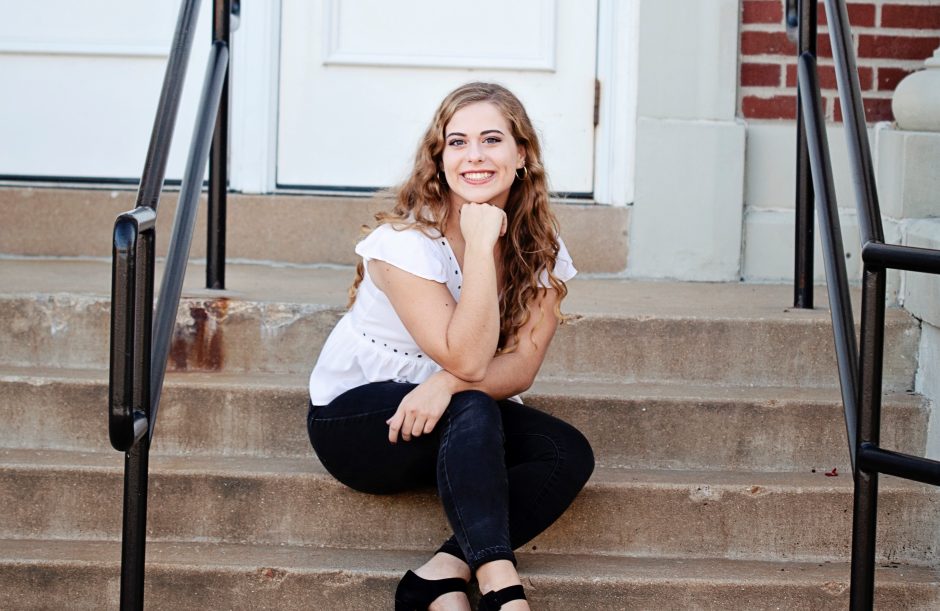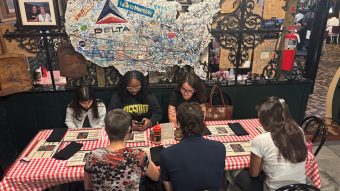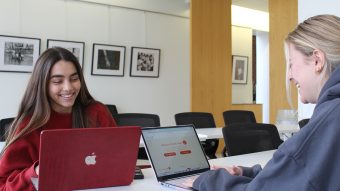
Aug. 14, 2023
Contact: Deidra Ashley, ashleyde@missouri.edu
Marissa LaMartina is a senior biological sciences major from Farmington, Missouri. She spent the summer at the St. Louis Zoo researching animal endocrinology and reproductive sciences.
Read on for a Q&A with LaMartina about her summer research experience.
Tell us about your research.
I spent the summer at the St. Louis Zoo’s Endangered Species Research Center as an endocrinology and reproductive sciences intern. I worked with samples from a wide range of species housed here at the zoo and elsewhere like Asian elephants, African painted dogs, tigers, banteng and more.
Ultimately, we seek to increase the population of endangered species by managing captive animals and keeping them genetically diverse— to conserve a healthy captive population of a dwindling wild species with the possibility of reintroductions to the wild.
What were some of your roles and responsibilities?
Part of my internship involved performing hormone extractions to help us monitor animal welfare and reproductive status. The data we gathered shows if females are cycling/pregnant, male fertility, and if animals are experiencing stress.
Another part of my internship was to preserve gametes (sperm and eggs) by freezing them in liquid nitrogen and evaluating how healthy they are for future use.
Why is this research important to you?
Conservation is at the core of everything the research team at the St. Louis Zoo does, and it’s incredibly rewarding knowing that the work I do has tangible impacts on animals.
How did your previous experience at Mizzou contribute to your success in the internship?
At Mizzou, I work in Dr. Manuel Leal’s lab studying behavior and cognition in lizards. While it’s not exactly a related field, being in Dr. Leal’s lab taught me how to contribute and speak up as an up-and-coming researcher.
Reproductive sciences is such a broad field, but I love how physiology, endocrinology and behavior intersect. These topics have been my favorite to learn about in my classes at Mizzou, and it was really cool to apply what I’d learned in an actual job.
What’s the biggest lesson you learned?
The biggest lesson I learned is to be up for anything — and be prepared to fill a lot of roles. Some days I was in the lab doing hormone extractions or writing about one of my new favorite species, the babirusa, and sometimes I was digging a trench with a pickaxe to bury cable for a new research project.
Is there anyone you’d like to thank at Mizzou for helping you get this summer research project?
I would like to thank Dr. Linda Blockus, Dr. Amy Lannin. Last fall at Research Day, Dr. Blockus and Dr. Lannin encouraged me to talk to Dr. Jim Spain, which ultimately started the game of telephone that got me into this internship. I also want to say ‘thank you’ to Ph.D. candidate Christian Perez for advising me on my application.
Meet more summer 2023 student researchers


